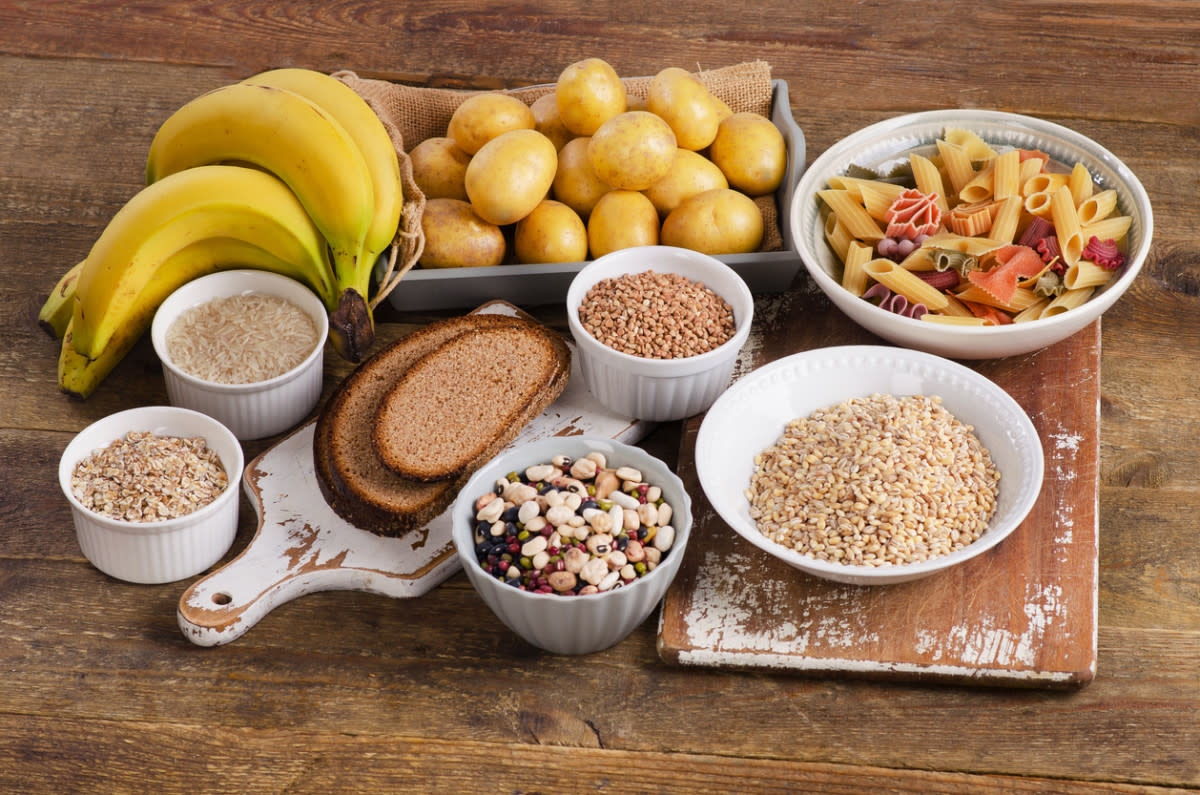6 ‘Bad’ Carbs That Are Actually Great for Your Brain

Carbs get a bad reputation. The popularity of low-carb diets has led many people to limit them or cut out carbs altogether. But carbs are actually great brain food—when you choose the right ones.
Carbs provide the body with energy, something your brain needs to function properly, explains Dr. Augusto Miravelle, MD, a neurologist and chief of the Multiple Sclerosis Center in the Department of Neurological Sciences at RUSH University in Chicago.
The brain uses about 20% of the calories you consume, even though it accounts for just 2% of body weight, Dr. Miravalle says, explaining that the brain burns calories when you think, remember, learn and sleep.
The brain’s preferred energy source is glucose, he says. Glucose is a type of sugar that comes from carbohydrates that you eat and drink. Your blood carries glucose to cells throughout your body for energy, according to the Cleveland Clinic.
While carbs are important for brain functioning, including improving mental health and slowing cognitive decline, it’s crucial to choose healthy, complex carbs, he explains. Carbs should also be incorporated into a balanced diet that includes lean protein and healthy fats, along with plenty of exercise.
What Type of Carbs Benefit Brain Health?
Fruits, vegetables and whole grains are the best carbohydrates for your brain, says Dr. Thomas Holland, MD, a physician-scientist at RUSH University, who studies the impact of lifestyle modifications on aging-related chronic diseases.
Related: ‘I’m a Neurologist, and These Are the Games That Actually Make a Difference in Brain Health’
These foods are considered complex carbs because it takes the body more time to break them down, “so they allow you to feel more full, and they’re processed in a way that allows for the appropriate nutrients to be pulled from them,” he explains.
Whole grains can help boost good cholesterol and reduce bad cholesterol, Dr. Holland adds.
While all fruits and veggies contain antioxidants, vitamins and nutrients that benefit the brain, the most colorful varieties have the biggest impact, says Julie Stefanski, RDN, a spokesperson for the Academy of Nutrition and Dietetics.
Berries especially contain high levels of polyphenols, a plant compound that protects your cells from damage, she adds. Flavonoids, a type of polyphenol that gives berries their bright colors, can help improve memory.
Research shows that eating strawberries and blueberries daily delayed cognitive decline by up to 2.5 years.
Fruits, vegetables and whole grains are also rich in fiber, which promotes gut health, Dr. Holland says. A healthy gut microbiome can reduce inflammation in the brain and elsewhere in the body, reducing your risk for disease. Fiber has also been linked to a lower risk of dementia.
6 ‘Bad’ Carbs That Are Good for the Brain
Not all carbs are created equal. Some may seem less-than-healthy, but they’re actually pretty good for your brain. Here’s a list:
1. Whole grain bread
People often mistakenly think bread isn’t healthy. And, if they’re choosing ultra-processed white bread, they’re right. But whole grain bread (along with other whole grain products) is a healthy source of complex carbs that’s good for your brain, Dr. Holland says.
Related: ‘I’m a Neurologist, and This Is What I Eat for Lunch Almost Every Day to Prevent Alzheimer’s’
Whole grains are also high in fiber, which is good for your gut, brain and heart. Whole grains are rich in B vitamins too, which have been shown to improve neurological functioning and preserve brain health.
2. Potatoes
Think of potatoes, and you probably imagine French fries, buttery mashed potatoes or potato chips, which you likely won’t find on a list of health foods. But, potatoes are actually a “wonderful source of carbs,” Dr. Miravalle says—when they’re not fried or slathered in butter or cheese.
Potatoes are rich in potassium, which can transmit nerve signals to your brain, which is necessary for learning and remembering. Potassium also counteracts sodium, which helps maintain electrolyte balance.
Eating the skin will give you some extra fiber too, Stefanski says, adding that roasting potatoes skin on with olive oil and fresh herbs is one of the healthiest ways to prepare spuds.
3. Enriched bread and cereal
While whole grains are best, they may not be accessible for everyone, Stefanski says. Enriched bread or cereal can also be healthy carb options.
With enriched bread, pasta, cereal and other products, iron and B vitamins—like thiamin, riboflavin, niacin and folic acid—are added back after refining, according to the U.S. Department of Agriculture. But these items might be lower in fiber than whole grains, so be sure to check the label.
4. Nuts
Nuts tend to have a higher fat content, so you might be tempted to avoid them. But nuts are packed with fiber, antioxidants and other nutrients that are good for your brain and the rest of your body.
Related: ‘I’m a Neurologist—This Is the Afternoon Snack I Eat Almost Every Day’
Eating walnuts, in particular, has been linked to improved cognitive test scores, research shows. These nuts contain significant levels of alpha-linolenic acid (ALA), a type of omega-3 fatty acid, which has been connected to lower blood pressure and clear arteries.
5. Dried fruits
Though they might seem like an overly sweet snack, dried fruits are a carbohydrate that offers some brain benefits. While Stefanski says fresh fruit is typically a better option, dried fruit can be a good source of fiber and natural sugar.
Fiber can lower your risk for heart disease and GI problems, which is also…
Read More: 6 ‘Bad’ Carbs That Are Actually Great for Your Brain
2024-06-01 20:03:45
